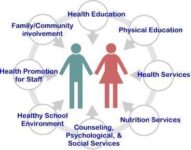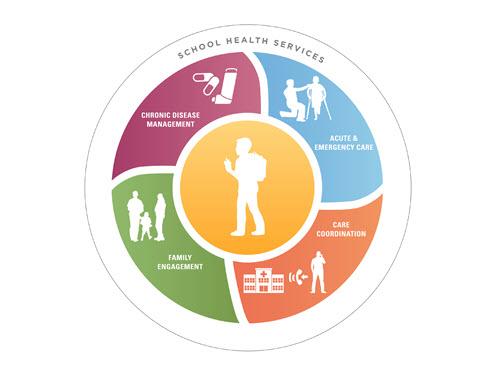What Are The Health Services Provided In School? A Comprehensive Guide
Schools play a crucial role beyond education – they are pivotal in fostering the overall health and wellbeing of students. The health services provided in schools not only help in managing daily health needs but also contribute to long-term student success by proactively addressing physical, mental, and emotional health issues.
In this article, we’ll explore the various types of health services offered in schools, outlining their benefits and practical tips for parents and educators to make the most of these vital resources.
Understanding School Health Services
School health services are a range of medical and support services designed to prevent illness, manage acute and chronic conditions, and promote healthy lifestyles among students. These services are typically administered by school nurses, counselors, and trained staff, often in partnership with healthcare providers and community organizations.
Main Types of Health Services Provided in School
The scope of health services in schools can vary widely depending on the resources available, local policies, and community needs. Here are the core health services commonly offered:
1. School Nursing and Basic Medical Care
- First Aid and Emergency Care: Immediate care for minor injuries and illnesses that occur during school hours.
- Medication Administration: Supervising and administering prescribed medications for chronic conditions such as asthma or diabetes.
- Health Assessments: Routine checks for vision, hearing, dental health, and growth to identify potential health issues early.
- Management of Chronic Conditions: Monitoring and support tailored for students with ongoing health needs.
2. Mental Health Services
- Counseling and Psychological Support: Access to school counselors or psychologists for emotional and behavioral support.
- Mental Health Awareness Programs: Initiatives to educate students and staff about recognizing and coping with mental health challenges.
- Referral Services: Connecting students with external mental health specialists if needed.
3. Health Education and Promotion
- Nutrition and Physical Activity Education: Programs encouraging healthy eating habits and regular exercise.
- Sexual and Reproductive Health Education: Age-appropriate lessons on puberty, relationships, and safe practices.
- Substance Abuse Prevention: Awareness campaigns about the risks of tobacco, alcohol, and drugs.
4. Immunization and Disease Prevention
- Vaccination Clinics: Offering immunization programs to prevent communicable diseases.
- Screening for Communicable Diseases: Monitoring for outbreaks of illnesses like influenza or lice infestations and responding promptly to prevent spread.
5. Special Health Services and Accommodations
- Individualized Health Plans (IHP): Customized care plans for students with special medical needs.
- Disability Support Services: Assistance with accessibility and accommodations for students with physical or learning disabilities.
Benefits of School Health Services
Providing comprehensive health services in schools offers numerous advantages, including:
- Improved Academic Performance: Healthy students are better learners with higher concentration and fewer absences.
- Early Detection and Intervention: Identifying health issues early prevents complications and supports timely treatment.
- Reduced Healthcare Disparities: Access to care in schools supports underprivileged students who may face barriers accessing medical services.
- Promotion of Lifelong Healthy Habits: School programs foster awareness and habits that benefit students throughout life.
- Safer School Environment: Effective management of communicable diseases and health emergencies reduces overall risks.
Practical Tips for Parents and Educators
Maximize the benefits of the health services offered in schools with these practical strategies:
- Stay Informed: Know what health services your child’s school offers and how to access them.
- Engage With Staff: Communicate openly with school nurses and counselors about your child’s health needs.
- Provide Accurate Health Information: Complete and update health forms promptly to ensure appropriate care.
- Encourage Healthy Habits: Reinforce lessons taught at school by promoting healthy eating, exercise, and hygiene at home.
- Support Mental Health: Foster open conversations about feelings and stress to complement school mental health resources.
School Health Services At A Glance
| Health Service | Key Features | Who Provides It |
|---|---|---|
| Basic Medical Care | First aid, medication, health checks | School Nurses, Health Aides |
| Mental Health Support | Counseling, referrals, awareness programs | School Counselors, Psychologists |
| Health Education | Nutrition, sexual health, substance abuse prevention | Teachers, Health Educators |
| Immunization & Screening | Vaccinations, communicable disease monitoring | School Nurse, Local Health Departments |
| Special Needs Support | Individual plans, accommodations | Special Education Staff, Nurses |
Case Study: Successful Implementation of School Health Services
Take for example Lincoln Elementary School, which integrated a comprehensive health care program staffed by a full-time nurse and a part-time counselor. Over two years, the school reported a 25% decrease in absenteeism and improved standardized test scores by integrating daily health screenings and mental health support groups.
This successful model highlights how investing in school health services creates tangible benefits in student well-being and academic achievement.
Conclusion
Health services provided in school are fundamental for nurturing a safe, supportive, and thriving educational environment. Whether through medical care, mental health support, or health education, these services ensure students receive the comprehensive care they need to excel. By understanding and utilizing the available resources, parents, educators, and communities can work collaboratively to promote healthier and happier students.
To sum up, investing in and advocating for robust school health services is investing in the future – a future where every child has the opportunity to learn, grow, and succeed in the best possible health.








